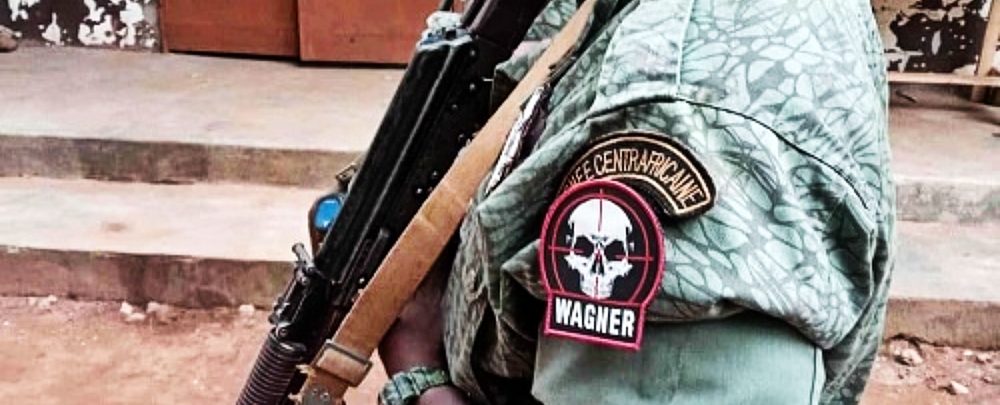On Saturday, June 24, 2023, Wagner Group PMC (Private Military Contractors) fighters barreled towards Moscow in an insurrection that began on Friday night. Led by its founder, Yevgeny Prigozhin, they raced in mutiny against the Russian military leadership led by Defense Minister Sergei Shoigu, seizing the major southern city of Rostov-on-Don and its key military base.
The mutineers were approaching the Russian capital when Prigozhin called off the “match” via a deal brokered by Belarus President, Alexander Lukashenko.
Later in televised addresses, Russian President Vladimir Putin offered Wagner soldiers and commanders three options – either sign a contract with the Russian Ministry of Defence or other agencies; return home to their families; or proceed on exile to Belarus.
The options mean that the future of the group is not clear yet. It also follows that its operational mode will most likely change.
- Tricyclists drive from Lagos to Abuja to honour Tinubu
- Tinubu mourns first FCT minister, Ajose-Adeogun
But whatever the outcome, Wagner’s further involvement in Africa in any form should not be on the table. This is despite the fact that the group has extensive holdings and influence across the world, particularly in Africa, where it has been key to Russian asymmetric race with the US and other Western nations. It has generally operated as Russia’s armed foreign policy apparatus, developing interdependency as it relies on the Russian state for military supplies and Russia depended on it to operate in areas where it doesn’t want to have an official footprint.
Since 2006, Putin had sought to rebuild Russian presence and role in Africa that was weakened by the 1991 collapse of the Soviet Union. Between 2015 and 2019, Russia signed 19 military agreements with African governments that have buoyed its weapon sales. And Wagner has been reliable in carrying out aspects of these agreements as it executes counter-insurgency and counter-terrorism operations. And their operational presence has helped Russia buoy their commercial, political and military interests.
Today, Wagner is engaged in 13 of the continent’s 54 nations with their biggest presence being in Central African Republic (CAR) and Mali. They’re involved in regime or elite protection duties, the safety of critical infrastructures, the conduct of offensive combat operations, provision of equipment and training, and acting as facilitation hubs for extraction/exploration of natural resources.
Outside CAR and Mali, they have been active in Sudan since 2017 and are involved in the civil war that broke out in April this year. They joined the Libyan civil war in October 2018 and in Mozambique, they’re fighting the al-Shabaab-linked terror group.
Other countries they operate in Africa are; Algeria, Burkina Faso, South Sudan, Eritrea, Cameroon, Equatorial Guinea, Madagascar and Zimbabwe. The group is also active in the Middle East, especially Syria and Yemen.
Though Russia’s Foreign Minister Sergey Lavrov has vowed Wagner Group’s operations in Mali and the Central African Republic “will continue,” despite their failed rebellion, African leaders who relied on the group to bolster their hold on power should face the reality that the group is weakened. They are now more virulently a risk to their countries’ future. They should, therefore, follow in the race to shut them out from the continent.
After all, they have served to entrench dictatorships and pose major threats to democracy and the rule of law, especially as they operate in nations with fragile governments. As they have shown with the mutiny in Russia, Wagner could easily topple their host governments.
Moreover, in their quest to provide cover for the exploitation of much sought-after raw materials including oil, gold, diamonds, uranium and manganese, they operate for their gains and other state and non-state actors, but not for the generality of host nations.
Obviously, their departure will leave potential destabilization gaps in their ongoing mission roles. So, the security vacuum needs to be filled urgently because insurgents and terrorists must not be allowed to gain ground and destabilize the countries. There must be no void.
Towards this, the African Union (AU) and regional groups must step in to facilitate more collaboration, coordination and intelligence sharing among member states.
Perhaps, it might not be out of place for traditional friends of Africa to give robust military assistance. Africa must not be abandoned again such that a private army becomes an option. The domination and control by foreign private armies is not only absurd, it is a consolidation of the neocolonial narrative of dependence on external actors for security and development. This already undermines sovereignty and perpetuates the cycle of instability.
Daily Trust believes that no private army or contractors should replace any nation’s armed forces in Africa. Instead of looking up to outsiders, they should strengthen their security architecture and build a responsive and accountable military. They must develop capabilities for effective intelligence-gathering mechanisms and enhancing counterterrorism capacities.
Genuine friends of Africa should help in strengthening military-to-military cooperation, not unleashing their private armies. Again, dialogue between African countries, Russia and Western powers is essential to build mutual trust, promote respect for sovereignty, and prevent further escalation of conflicts.
In addition, cooperative frameworks that promote shared security interests and economic development should be pursued to ensure a more balanced and inclusive approach to Africa’s security challenges.
The era of mercenaries, under any guise, is over. After all, in March 2018, Russia outlawed mercenarism in their country under Article 359 of its criminal code. They should extend same to Africa through the withdrawal of Wagner.

 Join Daily Trust WhatsApp Community For Quick Access To News and Happenings Around You.
Join Daily Trust WhatsApp Community For Quick Access To News and Happenings Around You.


